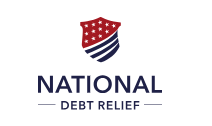7 Costly Mistakes to Avoid When Getting Out of Debt

Debt is a financial burden that millions of Americans struggle with daily. Whether it’s credit cards, student loans, personal loans, or tax obligations, debt can quickly escalate into a crisis if not handled strategically. Although tackling debt is challenging, avoiding common pitfalls can significantly boost your chances of success. In this detailed guide, we’ll explore seven critical mistakes people commonly make when trying to eliminate debt—and how you can avoid them.
1. Not Having a Clear Debt Repayment Plan
One of the biggest mistakes people make when trying to get out of debt is not having a clear, actionable repayment strategy. Simply making minimum payments or paying randomly without a clear plan can lead to frustration, higher interest payments, and prolonged debt cycles.
What You Should Do Instead:
Develop a structured repayment approach, such as the Debt Snowball (paying off smallest debts first for psychological wins) or the Debt Avalanche (prioritizing highest-interest debts to save money). Each method can be effective, depending on your personality and financial situation.
- Debt Snowball: Best for maintaining motivation with quick victories.
- Debt Avalanche: Ideal for minimizing overall interest paid.
If you’re struggling to establish an effective repayment strategy, consulting experts like National Debt Relief can offer tailored assistance to simplify the process.
2. Neglecting Your Budget and Spending Habits
Repaying debt requires more than just making minimum payments. It involves a fundamental change in spending habits. Without tracking your income and expenses, debt can easily spiral out of control, hindering your progress.
How to Avoid this Mistake:
- Create and strictly follow a realistic budget.
- Identify and eliminate unnecessary expenses (subscriptions, dining out, shopping, etc.).
- Allocate savings toward additional debt payments.
Consider using budgeting apps like Mint or YNAB (You Need A Budget) to help you keep your finances on track.
3. Ignoring Tax Debt
Many underestimate the importance and urgency of tax debt. Unlike credit card or personal loan debt, IRS tax debt carries severe penalties if left unpaid, including wage garnishments, tax liens, and potential legal action.
Proactive Steps:
- Address your IRS obligations immediately; don’t ignore IRS notices.
- Use reputable services like Tax Debt Relief to negotiate directly with the IRS, potentially reducing your liability and setting up affordable payment plans.
Ignoring tax debt prolongs financial stress and amplifies your debt problem. Immediate action helps prevent long-term damage.
3. Relying Solely on Credit Cards for Emergencies
Many people rely solely on credit cards for emergencies. While convenient, this habit increases your debt burden dramatically, particularly because credit card interest rates average around 20%.
Smart Alternative:
- Start building an emergency fund—initially, aim for at least $1,000, then gradually build it to cover three to six months of expenses.
- Keep credit cards as a last resort rather than your first line of defense.
4. Neglecting Your Credit Score
Damaged credit scores hinder your ability to secure loans at low-interest rates, potentially costing thousands of extra dollars in interest over the lifetime of your debt repayment. Ignoring your credit report or failing to address inaccuracies can severely limit your financial progress.
How to Take Control:
- Regularly monitor your credit reports from Experian, Equifax, and TransUnion.
- Use a trusted Credit Repair service to challenge inaccuracies and improve your credit score, enabling better debt repayment terms in the future.
5. Avoiding Professional Debt Assistance When Necessary
Some debts become too overwhelming to handle alone. Many individuals hesitate to seek professional help due to embarrassment, fear, or uncertainty. However, avoiding assistance can prolong your financial struggles.
Why Professional Assistance Matters:
- Companies such as National Debt Relief provide structured debt settlement solutions, negotiating reduced balances and manageable payment plans with creditors.
- Professional debt relief can accelerate your journey to financial freedom.
6. Failing to Negotiate with Creditors
Many individuals assume their debt obligations are fixed and non-negotiable. In reality, most creditors are open to negotiating terms, especially if you’re experiencing genuine financial hardship.
Negotiation Tips:
- Proactively contact your creditors to discuss alternative repayment arrangements.
- Clearly explain your financial situation; often, creditors prefer negotiating to risking default.
- Be persistent and professional in all negotiations, or hire a professional debt negotiator for better results.
Utilizing services like National Debt Relief can significantly simplify negotiations, resulting in reduced balances or lower payments.
6. Continuing to Accumulate New Debt
Attempting to repay debt without halting new debt accumulation is a costly mistake. This pattern can trap you in an endless cycle, neutralizing any progress you’ve made.
Practical Advice:
- Freeze credit card spending and commit to cash or debit transactions.
- Avoid unnecessary large purchases until you substantially reduce or eliminate existing debt.
- Address your mindset and behaviors, ensuring lasting change rather than temporary relief.
7. Ignoring Psychological Aspects of Debt Repayment
Debt isn’t merely financial; it’s emotional. Ignoring the mental and emotional toll of debt repayment often causes stress, anxiety, and eventual burnout—potentially derailing your progress entirely.
Addressing Psychological Challenges:
- Acknowledge the emotional burden of debt and create supportive coping strategies.
- Seek support from friends, family, or financial counseling groups.
- Establish incremental goals, celebrating small victories along your journey to maintain motivation and positivity.
How to Create a Realistic Debt-Free Timeline
Avoiding common mistakes is a critical step, but creating a clear and realistic timeline solidifies your path to success.
- Calculate your debt-free date: Use online debt calculators or apps to visualize a realistic repayment timeline.
- Monitor your progress monthly: Regularly evaluate your repayment progress, adjusting plans as necessary to stay on track.
- Be flexible: Understand life events may adjust your timeline; flexibility ensures you stay committed even through setbacks.
Additional Resources for Enhanced Financial Security
While debt repayment is crucial, additional financial resources further solidify your financial foundation.
- National Debt Relief: Provides structured debt settlement plans, significantly reducing balances, offering quicker debt elimination. Explore here.
- Tax Debt Relief: Expert solutions to tackle tax debt with specialized negotiation tactics and resolution strategies. Learn more.
- Credit Repair: Improve your credit profile, removing inaccuracies, repairing credit scores, and maximizing financial opportunities. Get started.
Final Thoughts: Mastering Debt Repayment Without Common Mistakes
Debt repayment is a challenging but achievable journey. Understanding—and avoiding—common mistakes significantly increases your chances of success. From developing responsible budgeting habits to leveraging professional debt management resources like National Debt Relief, taking proactive control over your tax debt issues, and repairing credit effectively with Credit Repair, each strategic step gets you closer to a debt-free life.
Embrace each step patiently, stay committed, and build a strong financial foundation that leads you confidently toward financial freedom.
Explore Our Categories

Credit Cards

Debt

Loans

Insurance

Retirement

Home Buying

Investing

Taxes
Free Yourself From Debt

National Debt Relief
✅ Reduce Your Debt – Pay Less Than You Owe!
✅ One Simple Monthly Payment – No More Juggling Bills.
✅ Get Relief From Credit Cards, Medical Bills & More
Ranked #1

